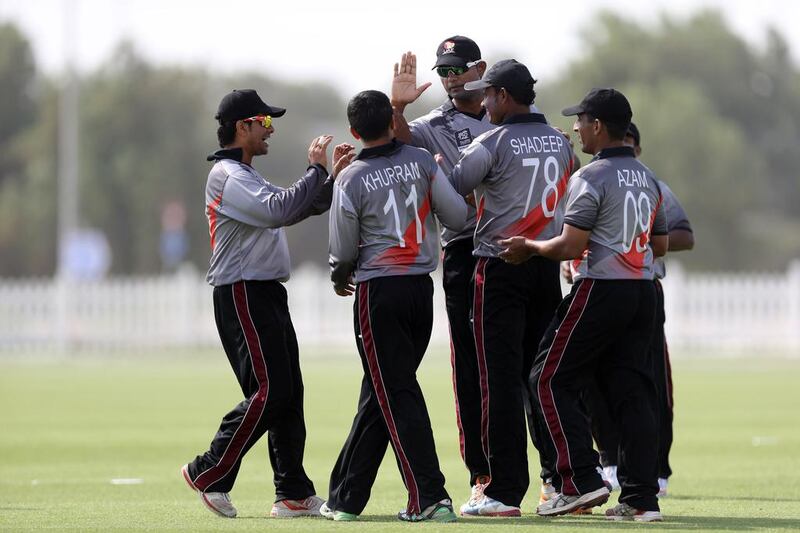The UAE have qualification for the 2014 World Twenty20 in Bangladesh in their sights and two chances to get there.
They can qualify with a victory over the Netherlands on Wednesday. Should they lose that match, they have a second opportunity in a game against the winner of a play-off between Scotland and Italy.
If they get to the World T20, it would be the first major international tournament for the UAE since the 1996 World Cup, though they would still need to get through a four-team qualifying group in Bangladesh before making it to the tournament proper.
This is a golden time for UAE cricket. Last month, the team came within one point of qualifying for the 50-over 2015 World Cup in Australia. They have another chance to advance in that competition, at New Zealand, in January.
Last August, they reached the semi-finals of the Asian Cricket Confederation Emerging Teams tournament, beating Bangladesh’s Under 23 side along the way for a first win over a Test-playing nation in more than 15 years.
However, one factor is working against sustaining this success – age. Rohan Mustafa, 25, is the youngest player in the UAE squad. Nine of the 14 men are 33 or older and two are in their 40s – captain Khurram Khan, 42, and Mohammed Shafiq, 44.
However, young talent is hard to come by, in part because of the ICC’s residency rules, which mean players usually must live in a country for seven years before they can play for a national team.
Another factor is that many players leave the UAE once they reach 18, either to enter higher education in a another country or to find a job.
UAE cricket is thriving at the youth level and the national team will compete in February’s Under 19 World Cup in the Emirates, but the Emirates Cricket Board (ECB) is likely to lose most of that young talent unless it can find a solution.
One suggestion is the idea of providing contracts to senior players and scholarships to youngsters, allowing them to remain in the UAE and to treat cricket as a profession. It has been discussed in the past, but finances are a likely stumbling block.
Khurram Khan has played UAE cricket for the past 11 years, as a player and captain, and it puts him in good position to speak about the future.
“The way forward is grass-roots cricket,” he said. “The administration needs to take the game to the schools and encourage both the Emirati and expat children.
“The UAE have the best facilities for the sport in the region, with turf grounds in Abu Dhabi, Dubai, Sharjah and Al Dhaid.”
In the meantime, the UAE are hoping their evergreen veterans can maintain their form and earn that spot in Bangladesh.
Aaqib Javed, the UAE coach, says fitness as an area of concern for him in dealing with the part-time cricketers. Seven matches in 10 days during this tournament appeared to take a toll, if the shock defeat to Italy earlier in the week was anything to go by.
However, with a two-day break ahead of the Netherlands match, the players will be expected to have fresh legs.
Khurram, though one of the oldest in the squad, is leading by example when it comes to keeping in shape.
“You don’t have to be after Khurram on his fitness,” said Chitrala Sudhaker, the team’s trainer and physiotherapist.
“He will do more than what he has been asked to do at training and it is evident that he keeps himself in good shape.”
This was evident from the stellar role he played in the victories over Hong Kong and the United States, in two of the UAE’s past three games. He scored 67 not out and took two wickets against Hong Kong, before a 61 not out, with three wickets, against the US.
On Wednesday, he will lead the team out in Abu Dhabi knowing that one win will create another piece of history.
apassela@thenational.ae






